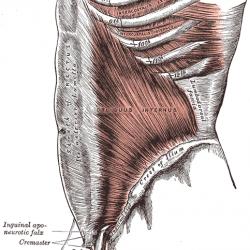Cultivating Healthy Coping Mechanisms in Recovery: A Path to Wellness
In the journey of recovery, whether from addiction, mental health issues, trauma, or any other challenging life circumstance, cultivating healthy coping mechanisms is crucial. It's akin to building a sturdy ship to navigate the stormy seas of life. Coping mechanisms are the strategies individuals use to deal with stress, adversity, or uncomfortable emotions. While some coping mechanisms may provide temporary relief, others can lead to harmful consequences. Therefore, it's essential to foster and embrace healthy coping mechanisms that promote well-being and long-term recovery.
The Importance of Self-Awareness in Coping Strategies
One of the foundational pillars of healthy coping mechanisms is self-awareness. Understanding one's triggers, emotions, and vulnerabilities lays the groundwork for choosing appropriate coping strategies. This awareness allows individuals to recognize when they're feeling overwhelmed and empowers them to intervene before emotions spiral out of control. Techniques such as mindfulness meditation, journaling, or therapy can aid in developing self-awareness and emotional regulation skills.
Finding Strength in Movement and Community
Incorporating physical activity into daily routines is another powerful coping mechanism. Exercise has been scientifically proven to boost mood, reduce stress, and increase energy levels. Whether it's a brisk walk in nature, a yoga session, or hitting the gym, engaging in physical activity releases endorphins, the body's natural feel-good chemicals. Moreover, regular exercise promotes better sleep, which is crucial for mental and emotional well-being.
Social support plays a significant role in recovery and coping. Building a network of supportive friends, family members, or peers who understand and validate one's experiences can provide a sense of belonging and reduce feelings of isolation. Support groups, such as Alcoholics Anonymous or Narcotics Anonymous, offer a safe space for individuals to share their struggles and receive encouragement from others who are on similar paths.
Nourishing the Mind, Body, and Soul in Recovery
Furthermore, adopting healthy lifestyle habits, such as nutritious eating and adequate sleep, contributes to overall resilience and coping ability. A balanced diet rich in fruits, vegetables, lean proteins, and whole grains nourishes the body and mind, whereas excessive consumption of processed foods or substances can exacerbate stress and mood fluctuations. Similarly, prioritizing quality sleep allows the brain to recharge and process emotions effectively.
Creativity and self-expression are valuable outlets for coping with difficult emotions. Engaging in activities such as painting, writing, playing music, or dancing allows individuals to channel their feelings in constructive ways. These creative endeavors serve as forms of catharsis, enabling individuals to release pent-up emotions and gain insights into their inner worlds.
A Journey of Growth and Resilience in Recovery
Learning effective problem-solving and coping skills through therapy or counseling equips individuals with tools to navigate life's challenges. Cognitive-behavioral techniques help individuals identify negative thought patterns and replace them with more adaptive beliefs. Additionally, practicing assertiveness and boundary-setting empowers individuals to advocate for their needs and assert control over their lives.
However, it's essential to acknowledge that recovery and cultivating healthy coping mechanisms are ongoing processes that require patience, self-compassion, and perseverance. Relapses and setbacks are natural parts of the journey, but they don't diminish one's progress or worth. Each day presents an opportunity to learn, grow, and refine coping skills.
Conclusion
In conclusion, cultivating healthy coping mechanisms in recovery is fundamental to achieving and maintaining wellness. By fostering self-awareness, engaging in physical activity, seeking social support, adopting healthy lifestyle habits, expressing creativity, and learning coping skills, individuals can build resilience and thrive in the face of adversity. Recovery is not just about abstaining from harmful behaviors; it's about embracing life with courage, authenticity, and compassion.
If you're in need of an inpatient drug rehab in the Charleston, SC, area, please reach out to us. We offer compassionate addiction treatment for women in Jacksonboro.
More to Read:
Previous Posts:







